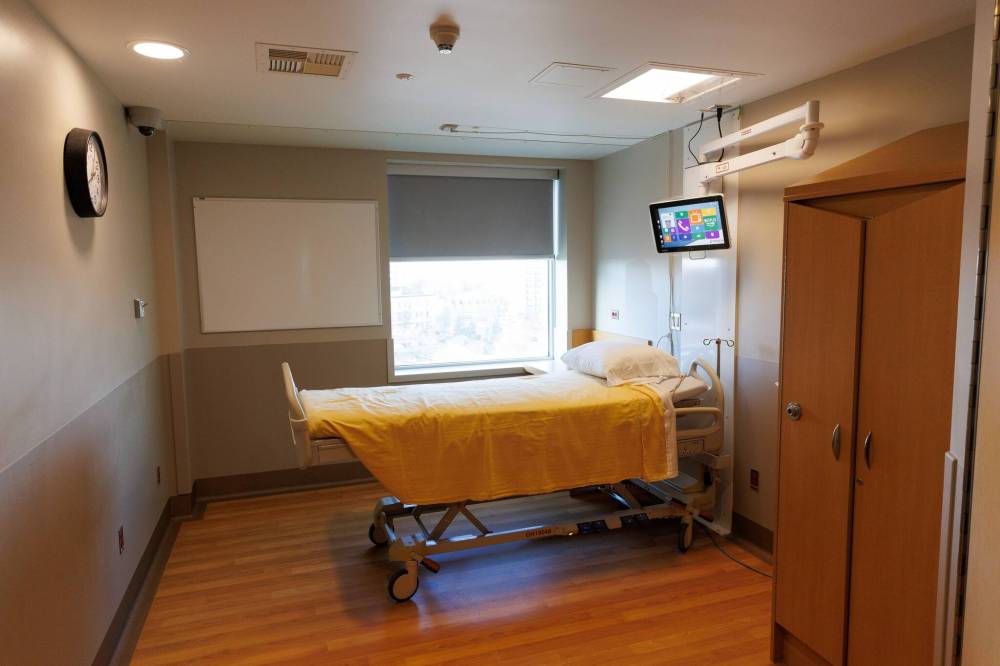Fifteen months in, no notable health-care improvements by NDP
Advertisement
Read this article for free:
or
Already have an account? Log in here »
To continue reading, please subscribe:
Monthly Digital Subscription
$0 for the first 4 weeks*
- Enjoy unlimited reading on winnipegfreepress.com
- Read the E-Edition, our digital replica newspaper
- Access News Break, our award-winning app
- Play interactive puzzles
*No charge for 4 weeks then price increases to the regular rate of $19.00 plus GST every four weeks. Offer available to new and qualified returning subscribers only. Cancel any time.
Monthly Digital Subscription
$4.75/week*
- Enjoy unlimited reading on winnipegfreepress.com
- Read the E-Edition, our digital replica newspaper
- Access News Break, our award-winning app
- Play interactive puzzles
*Billed as $19 plus GST every four weeks. Cancel any time.
To continue reading, please subscribe:
Add Free Press access to your Brandon Sun subscription for only an additional
$1 for the first 4 weeks*
*Your next subscription payment will increase by $1.00 and you will be charged $16.99 plus GST for four weeks. After four weeks, your payment will increase to $23.99 plus GST every four weeks.
Read unlimited articles for free today:
or
Already have an account? Log in here »
Hey there, time traveller!
This article was published 24/01/2025 (308 days ago), so information in it may no longer be current.
Manitoba’s NDP government could be forgiven if it still hasn’t “fixed” health care — as it promised to do during the 2023 election — after only 15 months in office.
After all, it takes time to bring down wait lists and improve the quality of health care — it can’t be done overnight.
Still, after 15 months, the public is looking for signs of any kind that improvements are on the way. So far, there appears to be few, if any.

MIKE DEAL / FREE PRESS FILES
Nearly two-thirds of respondents in the nurses union survey said there’s been either no improvement in health care or things have gotten worse.
Even the people who work on the front lines of health care are not seeing improvements. In fact, some of them say the system has worsened.
“There’s a true disconnect between what government is saying in news conferences and campaigns, and what people in health care on the front lines see every single day,” said Jason Linklater, president of the Manitoba Association of Health Care Professionals, whose organization recently commissioned a survey of its members.
The verdict: close to half (48 per cent) said their workplace lost staff last year and 62 per cent said their workload got worse in 2024. That’s bad news for a health-care system that’s been struggling with acute shortages of front-line workers in recent years.
There’s more: 59 per cent of respondents in the survey felt morale has worsened in their workplace.
It’s not exactly what you’d expect to hear 15 months into the first term of a government that pledged to “listen to front-line workers,” improve morale on the front lines and hire more staff.
“When we hear messaging coming from government that doesn’t reflect reality, it leads me to believe we’re at a stalemate in terms of being able to actually fix the system,” said Linklater, whose organization represents allied health workers, including paramedics, respiratory therapists, lab and imaging technologists and mental health clinicians.
Government claims to have hired 870 net new health care workers, although that’s difficult to independently verify. Of those, only 10 per cent were allied workers.
The association wasn’t the only organization that surveyed its members to gauge progress in health care. The Manitoba Nurses Union released a survey this week that showed 42 per cent of its members gave the province a “D” (no improvement) in health-care delivery. Another 24 per cent said there is “very minimal improvement” and 23 per cent said things have become worse.
That means nearly two-thirds of respondents in the nurses union survey said there’s been either no improvement in health care or things have gotten worse.
That’s not a great sign. It doesn’t give the public confidence that the province is doing the things necessary to alleviate hospital overcrowding, reduce emergency room wait times and speed up access to surgical procedures and diagnostic testing.
If those things were happening, health-care professionals working on the front lines would notice them. It wouldn’t necessarily lead to immediate reductions in wait times, but the preliminary work — including hiring more staff — would be obvious to those who work directly with patients.
They’re not noticing it. In fact, many say the system is worse today than it was 15 months ago.
It doesn’t help that allied workers have been without a contract since March 31, 2024. The NDP, while in opposition, criticized the former Progressive Conservative government for failing to bargain with health-care workers in a timely manner. Now they’re doing the same thing. It’s hurting morale, something the NDP during the provincial election vowed to change.
It also doesn’t help that the NDP has given away hundreds of millions of dollars in tax cuts, which has contributed to a projected deficit of $1.3 billion in 2024-25. As a result, it has less money to invest in health care and other front-line services.
Meanwhile, ER and urgent care wait times were slightly higher in November 2024 at Winnipeg hospitals (the most recent data available) at 3.65 hours (median wait time) compared with 3.57 hours in November 2023, a few weeks after NDP Premier Wab Kinew was sworn into office.
Wait times for hip and knee replacement surgery were slightly higher in 2024 than in 2023, as were wait times for MRIs, CT scans and ultrasounds.
If things were getting better in health care, even marginally, it would be reflected in surveys conducted by organizations such as the association of health care professionals and the nurses union. It would also start to show up in the data for wait times.
So far, a year and three months into the NDP’s first term, there’s no sign of that at all.
tom.brodbeck@freepress.mb.ca

Tom Brodbeck is an award-winning author and columnist with over 30 years experience in print media. He joined the Free Press in 2019. Born and raised in Montreal, Tom graduated from the University of Manitoba in 1993 with a Bachelor of Arts degree in economics and commerce. Read more about Tom.
Tom provides commentary and analysis on political and related issues at the municipal, provincial and federal level. His columns are built on research and coverage of local events. The Free Press’s editing team reviews Tom’s columns before they are posted online or published in print – part of the Free Press’s tradition, since 1872, of producing reliable independent journalism. Read more about Free Press’s history and mandate, and learn how our newsroom operates.
Our newsroom depends on a growing audience of readers to power our journalism. If you are not a paid reader, please consider becoming a subscriber.
Our newsroom depends on its audience of readers to power our journalism. Thank you for your support.











